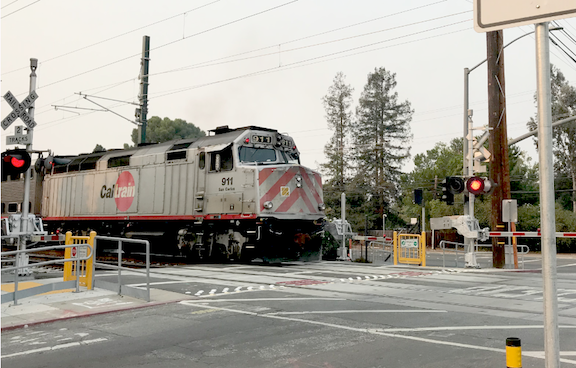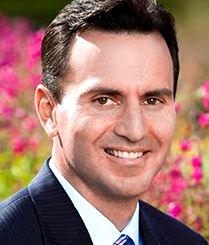
BY EMILY MIBACH
Daily Post Staff Writer
The battle for control of Caltrain got uglier yesterday (June 25) when San Francisco and Santa Clara County officials refused to attend a meeting over reducing San Mateo County’s control over the railroad, saying they feared a lawsuit.
On Tuesday, San Mateo County officials met in a closed-door session and emerged with an announcement that they want details about how the other two counties intend to repay $82 million from when the government took over the railroad from Southern Pacific some 30 years ago.
San Francisco Supervisor Shamann Walton and Santa Clara County Supervisor Cindy Chavez said on Tuesday they took that as an indication that San Mateo County was pulling out of the governance negotiations. San Mateo County has been in charge of the railroad for three decades because it footed the $82 million. But during a tussle last year over placing the 1/8th-cent sales tax Measure RR on the ballot — San Francisco and Santa Clara County officials got San Mateo County officials to agree to participate in discussions to change Caltrain’s governance structure.
San Francisco and Santa Clara counties want each county to have an equal say in running the running the railroad. San Mateo County doesn’t want to give up control.
Why they skipped the meeting
Santa Clara County’s VTA sent a letter to Caltrain yesterday before the governance meeting saying its representatives weren’t going to participate because SamTrans, San Mateo County’s transportation agency, was considering suing the other counties over the debt. Two of the county’s three representatives — Chavez and Sunnyvale Councilman Glenn Hendricks — did not show up to yesterday’s meeting. San Jose Councilwoman Dev Davis did, but said she was only there to chair the meeting and would not participate in any governance talks.
VTA drew that conclusion from the agenda for Tuesday’s meeting, which said SamTrans was going to have a closed session due to potential litigation. VTA figures that litigation is about suing the other counties for the $82 million.
Yesterday’s governance meeting went on anyway. Steve Heminger, the former Metropolitan Transportation Commission chief who is now a San Francisco MTA director, asked San Mateo County officials who they were thinking about suing.
Charles Stone, the Belmont mayor who is chairman of SamTrans, said he didn’t think SamTrans’ attorney would let him disclose that information.
Heminger said all three of the counties should lay their cards on the table regarding the debt.
After about 20 minutes of the board going back and forth at yesterday’s meeting, roughly a dozen people weighed in on the matter during the public comment segment, including some San Mateo County elected officials.
Menlo Park Councilman Ray Mueller noted that boards proceed “all the time under the threat of litigation,” and said taxpayers in all three counties expect the board to continue despite disagreements and disputes.
Redwood City Councilwoman Alicia Aguirre said she understands that regional governance is not easy, and said she was disappointed the governance talks were not moving forward. She also said nothing she has read makes it seem like San Mateo County is pulling out of governance talks.
Speaker says put the riders first
South San Francisco resident Ethan Mizzi said this latest issue proves that the Caltrain board members care more about the entities that appointed them to the board rather than working in the best interest of riders. Mizzi advocated for Caltrain to be absorbed by BART under its new governing model.
The board tried to adjourn the meeting, but it ended in a tie, with San Mateo County’s Jeff Gee, Dave Pine and Stone voting to keep the meeting going and Davis, Heminger and San Francisco representative Monique Zmuda voting to end it. Then Zmuda and Heminger said they were leaving the meeting, saying they did not think it was appropriate for talk about the governing model without the entire board there.
With only Davis and the three San Mateo representatives left, there was no quorum and the meeting ended.



